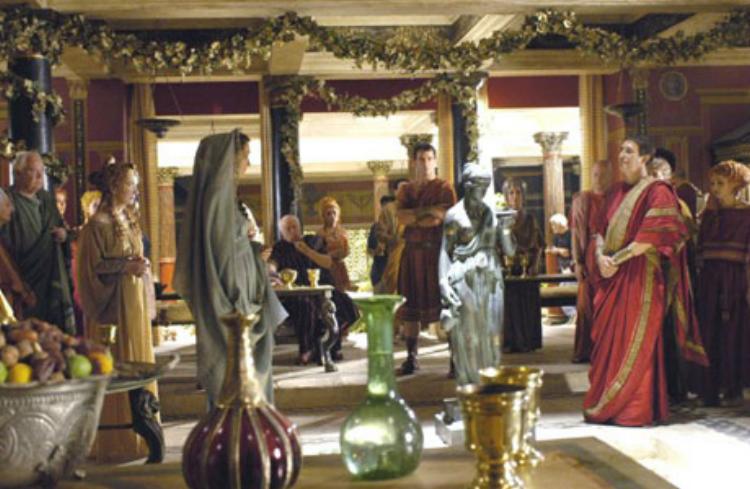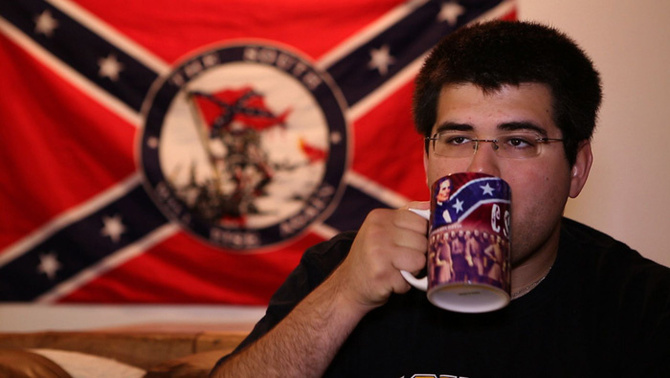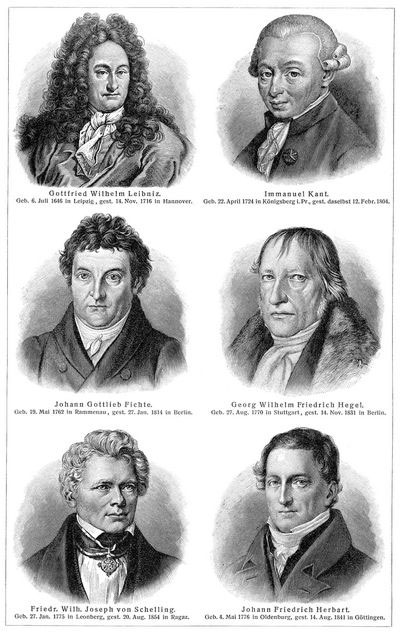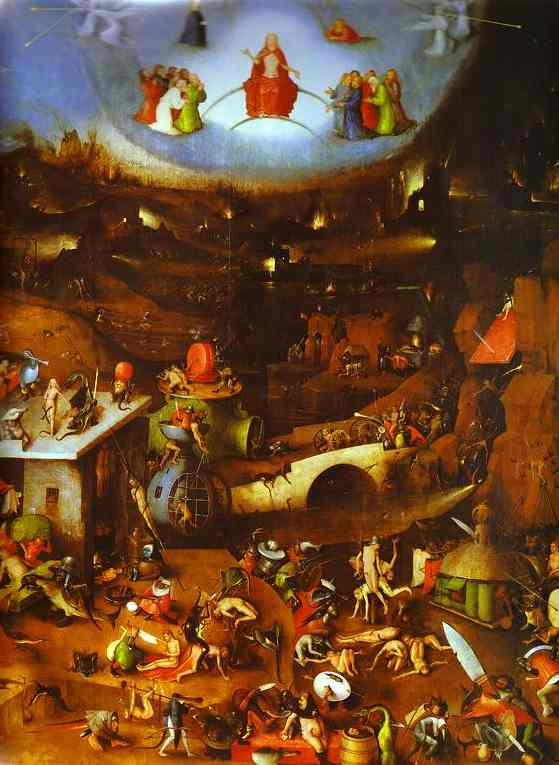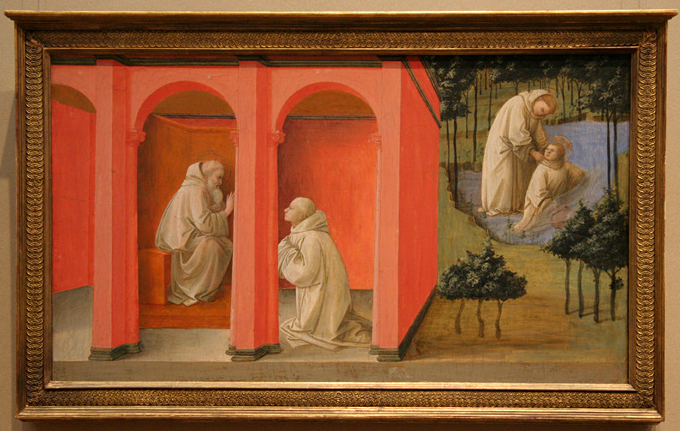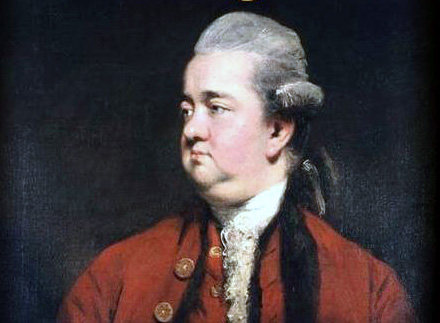
The History of the Decline and Fall
of the Roman Empire
Chapter XXIII:
Reign of Julian
Part II
The inclination of Julian might prefer the gods of Homer, and of the Scipios, to the new faith, which his uncle had established in the Roman empire; and in which he himself had been sanctified by the sacrament of baptism. But, as a philosopher, it was incumbent on him to justify his dissent from Christianity, which was supported by the number of its converts, by the chain of prophecy, the splendor of or miracles, and the weight of evidence.
The elaborate work, which he composed amidst the preparations of the Persian war, contained the substance of those arguments which he had long revolved in his mind. Some fragments have been transcribed and preserved, by his adversary, the vehement Cyril of Alexandria; and they exhibit a very singular mixture of wit and learning, of sophistry and fanaticism. The elegance of the style and the rank of the author, recommended his writings to the public attention; and in the impious list of the enemies of Christianity, the celebrated name of Porphyry was effaced by the superior merit or reputation of Julian.
The minds of the faithful were either seduced, or scandalized, or alarmed; and the pagans, who sometimes presumed to engage in the unequal dispute, derived, from the popular work of their Imperial missionary, an inexhaustible supply of fallacious objections. But in the assiduous prosecution of these theological studies, the emperor of the Romans imbibed the illiberal prejudices and passions of a polemic divine. He contracted an irrevocable obligation to maintain and propagate his religious opinions; and whilst he secretly applauded the strength and dexterity with which he wielded the weapons of controversy, he was tempted to distrust the sincerity, or to despise the understandings, of his antagonists, who could obstinately resist the force of reason and eloquence.
The Christians, who beheld with horror and indignation the apostasy of Julian, had much more to fear from his power than from his arguments. The pagans, who were conscious of his fervent zeal, expected, perhaps with impatience, that the flames of persecution should be immediately kindled against the enemies of the gods; and that the ingenious malice of Julian would invent some cruel refinements of death and torture which had been unknown to the rude and inexperienced fury of his predecessors.
But the hopes, as well as the fears, of the religious factions were apparently disappointed, by the prudent humanity of a prince, who was careful of his own fame, of the public peace, and of the rights of mankind. Instructed by history and reflection, Julian was persuaded that if the diseases of the body may sometimes be cured by salutary violence, neither steel nor fire can eradicate the erroneous opinions of the mind.
The reluctant victim may be dragged to the foot of the altar; but the heart still abhors and disclaims the sacrilegious act of the hand. Religious obstinacy is hardened and exasperated by oppression; and, as soon as the persecution subsides, those who have yielded are restored as penitents, and those who have resisted are honored as saints and martyrs. If Julian adopted the unsuccessful cruelty of Diocletian and his colleagues, he was sensible that he should stain his memory with the name of a tyrant, and add new glories to the Catholic church, which had derived strength and increase from the severity of the pagan magistrates.
Actuated by these motives, and apprehensive of disturbing the repose of an unsettled reign, Julian surprised the world by an edict, which was not unworthy of a statesman, or a philosopher. He extended to all the inhabitants of the Roman world the benefits of a free and equal toleration; and the only hardship which he inflicted on the Christians, was to deprive them of the power of tormenting their fellow-subjects, whom they stigmatized with the odious titles of idolaters and heretics.
The pagans received a gracious permission, or rather an express order, to open all their temples; and they were at once delivered from the oppressive laws, and arbitrary vexations, which they had sustained under the reign of Constantine, and of his sons. At the same time the bishops and clergy, who had been banished by the Arian monarch, were recalled from exile, and restored to their respective churches; the Donatists, the Novatians, the Macedonians, the Eunomians, and those who, with a more prosperous fortune, adhered to the doctrine of the Council of Nice.
Julian, who understood and derided their theological disputes, invited to the palace the leaders of the hostile sects, that he might enjoy the agreeable spectacle of their furious encounters. The clamor of controversy sometimes provoked the emperor to exclaim, “Hear me! the Franks have heard me, and the Alemanni;” but he soon discovered that he was now engaged with more obstinate and implacable enemies; and though he exerted the powers of oratory to persuade them to live in concord, or at least in peace, he was perfectly satisfied, before he dismissed them from his presence, that he had nothing to dread from the union of the Christians.
The impartial Ammianus has ascribed this affected clemency to the desire of fomenting the intestine divisions of the church, and the insidious design of undermining the foundations of Christianity, was inseparably connected with the zeal which Julian professed, to restore the ancient religion of the empire. As soon as he ascended the throne, he assumed, according to the custom of his predecessors, the character of supreme pontiff; not only as the most honorable title of Imperial greatness, but as a sacred and important office; the duties of which he was resolved to execute with pious diligence. As the business of the state prevented the emperor from joining every day in the public devotion of his subjects, he dedicated a domestic chapel to his tutelar deity the Sun; his gardens were filled with statues and altars of the gods; and each apartment of the palace displaced the appearance of a magnificent temple.
Every morning he saluted the parent of light with a sacrifice; the blood of another victim was shed at the moment when the Sun sunk below the horizon; and the Moon, the Stars, and the Genii of the night received their respective and seasonable honors from the indefatigable devotion of Julian. On solemn festivals, he regularly visited the temple of the god or goddess to whom the day was peculiarly consecrated, and endeavored to excite the religion of the magistrates and people by the example of his own zeal. Instead of maintaining the lofty state of a monarch, distinguished by the splendor of his purple, and encompassed by the golden shields of his guards, Julian solicited, with respectful eagerness, the meanest offices which contributed to the worship of the gods.
Amidst the sacred but licentious crowd of priests, of inferior ministers, and of female dancers, who were dedicated to the service of the temple, it was the business of the emperor to bring the wood, to blow the fire, to handle the knife, to slaughter the victim, and, thrusting his bloody hands into the bowels of the expiring animal, to draw forth the heart or liver, and to read, with the consummate skill of an haruspex, imaginary signs of future events. The wisest of the Pagans censured this extravagant superstition, which affected to despise the restraints of prudence and decency.
Under the reign of a prince, who practised the rigid maxims of economy, the expense of religious worship consumed a very large portion of the revenue a constant supply of the scarcest and most beautiful birds was transported from distant climates, to bleed on the altars of the gods; a hundred oxen were frequently sacrificed by Julian on one and the same day; and it soon became a popular jest, that if he should return with conquest from the Persian war, the breed of horned cattle must infallibly be extinguished.
Yet this expense may appear inconsiderable, when it is compared with the splendid presents which were offered either by the hand, or by order, of the emperor, to all the celebrated places of devotion in the Roman world; and with the sums allotted to repair and decorate the ancient temples, which had suffered the silent decay of time, or the recent injuries of Christian rapine.
Encouraged by the example, the exhortations, the liberality, of their pious sovereign, the cities and families resumed the practice of their neglected ceremonies. “Every part of the world,” exclaims Libanius, with devout transport, “displayed the triumph of religion; and the grateful prospect of flaming altars, bleeding victims, the smoke of incense, and a solemn train of priests and prophets, without fear and without danger. The sound of prayer and of music was heard on the tops of the highest mountains; and the same ox afforded a sacrifice for the gods, and a supper for their joyous votaries.”
But the genius and power of Julian were unequal to the enterprise of restoring a religion which was destitute of theological principles, of moral precepts, and of ecclesiastical discipline; which rapidly hastened to decay and dissolution, and was not susceptible of any solid or consistent reformation.
The jurisdiction of the supreme pontiff, more especially after that office had been united with the Imperial dignity, comprehended the whole extent of the Roman empire. Julian named for his vicars, in the several provinces, the priests and philosophers whom he esteemed the best qualified to cooperate in the execution of his great design; and his pastoral letters, if we may use that name, still represent a very curious sketch of his wishes and intentions.
He directs, that in every city the sacerdotal order should be composed, without any distinction of birth and fortune, of those persons who were the most conspicuous for the love of the gods, and of men. “If they are guilty,” continues he,
of any scandalous offence, they should be censured or degraded by the superior pontiff; but as long as they retain their rank, they are entitled to the respect of the magistrates and people. Their humility may be shown in the plainness of their domestic garb; their dignity, in the pomp of holy vestments.
When they are summoned in their turn to officiate before the altar, they ought not, during the appointed number of days, to depart from the precincts of the temple; nor should a single day be suffered to elapse, without the prayers and the sacrifice, which they are obliged to offer for the prosperity of the state, and of individuals. The exercise of their sacred functions requires an immaculate purity, both of mind and body; and even when they are dismissed from the temple to the occupations of common life, it is incumbent on them to excel in decency and virtue the rest of their fellow-citizens. The priest of the gods should never be seen in theatres or taverns.
His conversation should be chaste, his diet temperate, his friends of honorable reputation; and if he sometimes visits the Forum or the Palace, he should appear only as the advocate of those who have vainly solicited either justice or mercy. His studies should be suited to the sanctity of his profession. Licentious tales, or comedies, or satires, must be banished from his library, which ought solely to consist of historical or philosophical writings; of history, which is founded in truth, and of philosophy, which is connected with religion.
The impious opinions of the Epicureans and sceptics deserve his abhorrence and contempt; but he should diligently study the systems of Pythagoras, of Plato, and of the Stoics, which unanimously teach that there are gods; that the world is governed by their providence; that their goodness is the source of every temporal blessing; and that they have prepared for the human soul a future state of reward or punishment.
The Imperial pontiff inculcates, in the most persuasive language, the duties of benevolence and hospitality; exhorts his inferior clergy to recommend the universal practice of those virtues; promises to assist their indigence from the public treasury; and declares his resolution of establishing hospitals in every city, where the poor should be received without any invidious distinction of country or of religion. Julian beheld with envy the wise and humane regulations of the church; and he very frankly confesses his intention to deprive the Christians of the applause, as well as advantage, which they had acquired by the exclusive practice of charity and beneficence.
The same spirit of imitation might dispose the emperor to adopt several ecclesiastical institutions, the use and importance of which were approved by the success of his enemies. But if these imaginary plans of reformation had been realized, the forced and imperfect copy would have been less beneficial to Paganism, than honorable to Christianity.
The Gentiles, who peaceably followed the customs of their ancestors, were rather surprised than pleased with the introduction of foreign manners; and in the short period of his reign, Julian had frequent occasions to complain of the want of fervor of his own party. The enthusiasm of Julian prompted him to embrace the friends of Jupiter as his personal friends and brethren; and though he partially overlooked the merit of Christian constancy, he admired and rewarded the noble perseverance of those Gentiles who had preferred the favor of the gods to that of the emperor.
If they cultivated the literature, as well as the religion, of the Greeks, they acquired an additional claim to the friendship of Julian, who ranked the Muses in the number of his tutelar deities. In the religion which he had adopted, piety and learning were almost synonymous; and a crowd of poets, of rhetoricians, and of philosophers, hastened to the Imperial court, to occupy the vacant places of the bishops, who had seduced the credulity of Constantius.
His successor esteemed the ties of common initiation as far more sacred than those of consanguinity; he chose his favorites among the sages, who were deeply skilled in the occult sciences of magic and divination; and every impostor, who pretended to reveal the secrets of futurity, was assured of enjoying the present hour in honor and affluence.
Among the philosophers, Maximus obtained the most eminent rank in the friendship of his royal disciple, who communicated, with unreserved confidence, his actions, his sentiments, and his religious designs, during the anxious suspense of the civil war. As soon as Julian had taken possession of the palace of Constantinople, he despatched an honorable and pressing invitation to Maximus, who then resided at Sardes in Lydia, with Chrysanthius, the associate of his art and studies.
The prudent and superstitious Chrysanthius refused to undertake a journey which showed itself, according to the rules of divination, with the most threatening and malignant aspect: but his companion, whose fanaticism was of a bolder cast, persisted in his interrogations, till he had extorted from the gods a seeming consent to his own wishes, and those of the emperor. The journey of Maximus through the cities of Asia displayed the triumph of philosophic vanity; and the magistrates vied with each other in the honorable reception which they prepared for the friend of their sovereign. Julian was pronouncing an oration before the senate, when he was informed of the arrival of Maximus.
The emperor immediately interrupted his discourse, advanced to meet him, and after a tender embrace, conducted him by the hand into the midst of the assembly; where he publicly acknowledged the benefits which he had derived from the instructions of the philosopher.
Maximus, who soon acquired the confidence, and influenced the councils of Julian, was insensibly corrupted by the temptations of a court. His dress became more splendid, his demeanor more lofty, and he was exposed, under a succeeding reign, to a disgraceful inquiry into the means by which the disciple of Plato had accumulated, in the short duration of his favor, a very scandalous proportion of wealth. Of the other philosophers and sophists, who were invited to the Imperial residence by the choice of Julian, or by the success of Maximus, few were able to preserve their innocence or their reputation.
The liberal gifts of money, lands, and houses, were insufficient to satiate their rapacious avarice; and the indignation of the people was justly excited by the remembrance of their abject poverty and disinterested professions. The penetration of Julian could not always be deceived: but he was unwilling to despise the characters of those men whose talents deserved his esteem: he desired to escape the double reproach of imprudence and inconstancy; and he was apprehensive of degrading, in the eyes of the profane, the honor of letters and of religion.
The favor of Julian was almost equally divided between the Pagans, who had firmly adhered to the worship of their ancestors, and the Christians, who prudently embraced the religion of their sovereign. The acquisition of new proselytes gratified the ruling passions of his soul, superstition and vanity; and he was heard to declare, with the enthusiasm of a missionary, that if he could render each individual richer than Midas, and every city greater than Babylon, he should not esteem himself the benefactor of mankind, unless, at the same time, he could reclaim his subjects from their impious revolt against the immortal gods.
A prince who had studied human nature, and who possessed the treasures of the Roman empire, could adapt his arguments, his promises, and his rewards, to every order of Christians; and the merit of a seasonable conversion was allowed to supply the defects of a candidate, or even to expiate the guilt of a criminal. As the army is the most forcible engine of absolute power, Julian applied himself, with peculiar diligence, to corrupt the religion of his troops, without whose hearty concurrence every measure must be dangerous and unsuccessful; and the natural temper of soldiers made this conquest as easy as it was important.
The legions of Gaul devoted themselves to the faith, as well as to the fortunes, of their victorious leader; and even before the death of Constantius, he had the satisfaction of announcing to his friends, that they assisted with fervent devotion, and voracious appetite, at the sacrifices, which were repeatedly offered in his camp, of whole hecatombs of fat oxen.
The armies of the East, which had been trained under the standard of the cross, and of Constantius, required amore artful and expensive mode of persuasion. On the days of solemn and public festivals, the emperor received the homage, and rewarded the merit, of the troops. His throne of state was encircled with the military ensigns of Rome and the republic; the holy name of Christ was erased from the Labarum; and the symbols of war, of majesty, and of pagan superstition, were so dexterously blended, that the faithful subject incurred the guilt of idolatry, when he respectfully saluted the person or image of his sovereign.
The soldiers passed successively in review; and each of them, before he received from the hand of Julian a liberal donative, proportioned to his rank and services, was required to cast a few grains of incense into the flame which burnt upon the altar. Some Christian confessors might resist, and others might repent; but the far greater number, allured by the prospect of gold, and awed by the presence of the emperor, contracted the criminal engagement; and their future perseverance in the worship of the gods was enforced by every consideration of duty and of interest.
By the frequent repetition of these arts, and at the expense of sums which would have purchased the service of half the nations of Scythia, Julian gradually acquired for his troops the imaginary protection of the gods, and for himself the firm and effectual support of the Roman legions. It is indeed more than probable, that the restoration and encouragement of Paganism revealed a multitude of pretended Christians, who, from motives of temporal advantage, had acquiesced in the religion of the former reign; and who afterwards returned, with the same flexibility of conscience, to the faith which was professed by the successors of Julian.
While the devout monarch incessantly labored to restore and propagate the religion of his ancestors, he embraced the extraordinary design of rebuilding the temple of Jerusalem. In a public epistle to the nation or community of the Jews, dispersed through the provinces, he pities their misfortunes, condemns their oppressors, praises their constancy, declares himself their gracious protector, and expresses a pious hope, that after his return from the Persian war, he may be permitted to pay his grateful vows to the Almighty in his holy city of Jerusalem.
The blind superstition, and abject slavery, of those unfortunate exiles, must excite the contempt of a philosophic emperor; but they deserved the friendship of Julian, by their implacable hatred of the Christian name. The barren synagogue abhorred and envied the fecundity of the rebellious church; the power of the Jews was not equal to their malice; but their gravest rabbis approved the private murder of an apostate; and their seditious clamors had often awakened the indolence of the Pagan magistrates.
Under the reign of Constantine, the Jews became the subjects of their revolted children nor was it long before they experienced the bitterness of domestic tyranny. The civil immunities which had been granted, or confirmed, by Severus, were gradually repealed by the Christian princes; and a rash tumult, excited by the Jews of Palestine, seemed to justify the lucrative modes of oppression which were invented by the bishops and eunuchs of the court of Constantius.
The Jewish patriarch, who was still permitted to exercise a precarious jurisdiction, held his residence at Tiberias; and the neighboring cities of Palestine were filled with the remains of a people who fondly adhered to the promised land. But the edict of Hadrian was renewed and enforced; and they viewed from afar the walls of the holy city, which were profaned in their eyes by the triumph of the cross and the devotion of the Christians.
